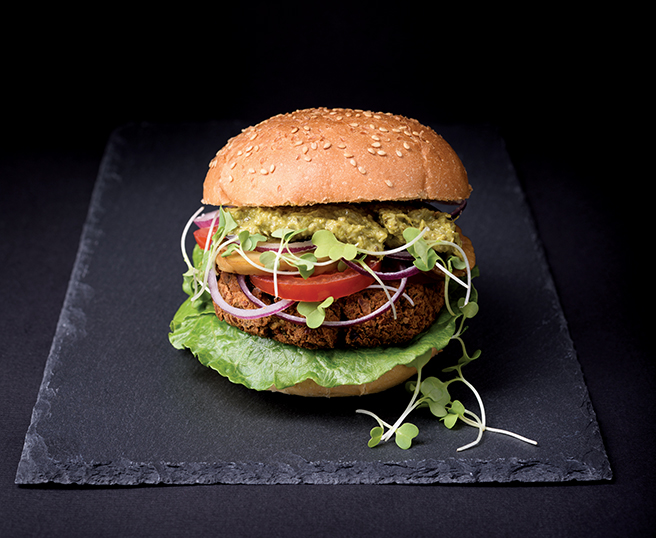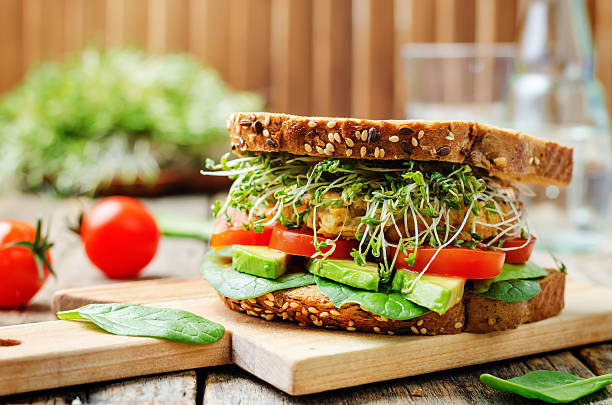Ali Walsh discovers that gluten-free may not mean gluten-free…

For nearly 20 years my life has revolved around gluten. In the beginning, I quickly learned from my own mistakes. I ate a battered prawn ball at a Chinese restaurant and hours later had to rush to the loo. It wasn’t a mistake I was willing to make twice. So I went the way of a caveman and only chose foods that could be hunted or gathered – i.e. pretty much buying from the supermarket fruit and veg or meat section and avoiding anything else.
This couldn’t last forever, though. I kept having to go hungry and winced every time friends invited me for dinner. Couldn’t we just go for drinks instead? And when you’re in your twenties, it’s fairly easy to pull this one off. But then people have the nerve to settle down (and by people I’m referring to myself). People want (horrors) to sit at a table when they go out. They favour sustenance over alcohol. There’s no longer the urge to be in noisy nightclubs; people actually want to converse and that means, yep, a restaurant.
So when the gluten-free revolution burst onto the scene, I was delighted with the number of places that began serving gluten-free food.
The fakers
That is, until I experienced the fakers. The jokers. The eateries so keen to profit from the gluten-free rush they hadn’t paused to think what it really meant.
Far from being the dream I’d anticipated, the rise in gluten-free offerings in cafes and restaurants suddenly meant a surge in the number of times I was glutened. Instead of opting for a place that served naturally gluten-free food (like a jacket potato), I started eating gluten-free pizzas, lasagnes and sandwiches. At least, I thought they were gluten-free… and then I’d double over in pain.
Clearly, these establishments weren’t observing the law on gluten-free. This includes adequately training staff, avoiding cross-contamination and only providing a gluten-free menu if the food is genuinely gluten-free.
Gluten-free detective
So it wasn’t long before I became my very own gluten-free detective. I’d interrogate waiters with endless questions, often causing them to go back and forth to the kitchen like a yo-yo. My reasoning was I’d rather be the troublesome customer who absolutely definitely got a gluten-free meal than the fool who was ill because they didn’t want to cause problems.
But these exhaustive tactics don’t always give peace of mind. Despite calling ahead to ask about gluten-free options, ordering from a gluten-free menu and/or quizzing the waiter endlessly about my needs as a coeliac, the following situations have happened to me in the last year:
- A stuffing ball was put on my Christmas dinner plate at a fancy restaurant;
- Rye bread sandwiches were put out specially for me;
- The wrong pasta was given to me in a café that specialised in gluten-free options;
- Shortcake was crumbled over my pudding; and
- Croutons were hidden in my green leaf side salad.
Apart from the pasta, I’m glad to say my inner private eye detected a problem and I didn’t eat the gluten. But that brings me back to my main issue with eating out: the places that haven’t done their homework. They’re the ones I call the fakers.
It’s one thing to have done everything you possibly can to ensure your gluten-free options are just that. To these establishments, I am eternally grateful. You make eating out for coeliacs a joy.
But the people who’ve not researched what it means to provide gluten-free food, those who think they can cut corners and the places who excel in ignorance – they’re the ones who need to be pulled up by their bootstraps.
The FSA (Food Standards Agency) makes it clear that food can only be labelled gluten-free in a café or restaurant if it’s lower than 20ppm (parts per million); it can be labelled as very low gluten if it’s lower than 100ppm. It’s also mandatory for all food practices to train ‘all staff on all aspects of preparation and serving of gluten-free food’ (Coeliac UK).

Now I don’t know about you, but I couldn’t picture a particle of gluten lower than 20ppm. It’s got to be smaller than a breadcrumb. So it’s fair to say a trained caterer should know:
- Not to cross-contaminate by using the same toaster/grill for products with gluten in;
- Not to place uncovered gluten-free food next to normal food;
- Not to whisk a wafer out of an ice cream and consider it safe to serve to a Coeliac.
And yet I’ve witnessed all these things.
Of course, I always challenge the staff. Usually, they’re extremely apologetic and do their best to rectify matters. But every so often I encounter an obstinate manager who refuses to listen and insists they know better.
So what can be done about it? You can complain to Trading Standards, but this seems like rather a drastic option and, realistically, if you don’t want to spend half your life pursuing matters, there should be a better way to solve the problem.
My proposal? There should be better awareness. The government could provide a gluten-free catering poster – one that covers every aspect of handling gluten (not simply a brief note like the 14 different allergens poster). It should be issued to all eating establishments and be in full view of staff by law, just like the one for health & safety. After all, it’s our health and safety that’s at risk.

The worst offenders
The One With Fingers in His Ears
Regardless of your protestations, they maintain they’re right despite overwhelming evidence to the contrary.
Most likely to say: “My other coeliac customers don’t have a problem.”
The Cross Contaminator
Your gluten-free burger bun gets grilled with the normal buns.
Most likely to say: “We don’t have space for two grills.” (And yet you ordered from their gluten-free menu.)
The Outright Liar
Most likely to say: “Don’t worry: it’s deep fat-fried and the hot temperature kills off the gluten.”
This person has no idea!
The Joker
Thinks it’s hilarious the number of times you’ve checked your meal’s gluten-free.
Most likely to say: “Ha ha ha ha ha, yes, you’ve told me you need gluten-free (snorts)”. Then they’ll serve you the wrong food.
The Chinese Whisperer
You’ve made your needs clear to the waiter, but somehow they got lost in translation.
Most likely to say: “Chef, this dish has to be gluten-free.” The chef won’t speak a word of English.
The Untrained Member of Staff
They check with another member of staff what sorbet you can have, and then they stick it in a waffle cone.
Most likely to say: Nothing.
What do you think would make things better? I’d love to hear your thoughts. Tweet me @localbakehouse!
